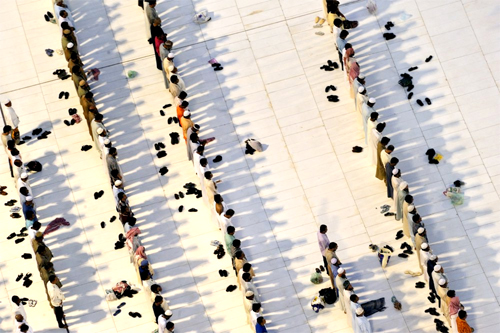
Islam, the world’s second-largest religion and the third Abrahamic faith tradition to develop, is often a controversial subject in the U.S. But it’s also one about which many Americans may be grossly uninformed, according to Tigard’s Muslim Educational Trust.
This controversey will be examined in-depth Wednesday, Feb. 15, in a conversational lecture titled “Understanding Islam” taking place at Portland State’s Academic and Student Rec Center.
The lecture is the second event in the Culture and Conversations series hosted by PSU’s School of Social Work in conjunction with the new School of Social Work Continuing Education program, according to Eliz Roser, project coordinator at the Center for Improvement of Child and Family Services.
“The Culture and Conversations series is an opportunity for community leaders to facilitate conversations around celebrating strengths and understanding disparities in communities of color in Oregon,” Roser said.
“Understanding Islam” is the second of four events in the series, all of which focus on cultural enrichment and awareness.
“We are absolutely thrilled that Rania Ayoub and Wajdi Said from the [MET] are facilitating this dialogue to enrich our understanding of Islam,” Roser said. “The work that MET is currently doing is vital to our community.”
The MET was approached about a month ago to host the lecture and immediately agreed to get involved. So far, nearly 60 people are slated to attend.
For Ayoub, MET director of public relations, there is a great need to promote a more accurate representation of Islam.
“Unfortunately, the media has an agenda to portray Islam in the most negative, pejorative manner,” Ayoub said. “The media only chooses what it wants to air about Islam.”
For example, whenever a crime is committed by a Muslim, the entire religion of Islam gets blamed for it, and the crime is then called an “act of terror,” according to Ayoub.
“As a result, the public gets brainwashed and figure that what they see and hear on TV must be true,” she said. “People become fearful of the faith and of followers of this faith that they really know nothing about.”
In “Understanding Islam,” Ayoub will shed light on unexplored sides of the religion, which Ayoub describes as one of “peace and bridge-building.”
“Islam has been preached by prophets over the span of time starting with Prophet Adam, Prophet Noah, Prophet Moses, Prophet Jesus and finally Prophet Muhammad,” she said. “Peace be upon them all.”
Islam literally means “peaceful submission to God within a three-fold peace with God, His creation and oneself,” according to Ayoub. It is a faith system and complete way of life that is practiced by more than one-fifth of the world’s population, with roughly 1.5 billion adherents from Southeast Asia, the Middle East, Europe and North and South America.
“Islam should not be judged by the actions of a handful of people who happen to be Muslim and committed horrid crimes,” Ayoub said, “but rather by the peaceful and ethical majority who strive in the way of God every day to be better human beings and better citizens of the world in their quest to attain God’s favor in this life and in the next.”
The Culture and Conversation series:“Understanding Islam”
Wednesday, Feb. 15, 4–5:30 p.m.
Academic and Student Rec Center, room 620
Free and open to the public

